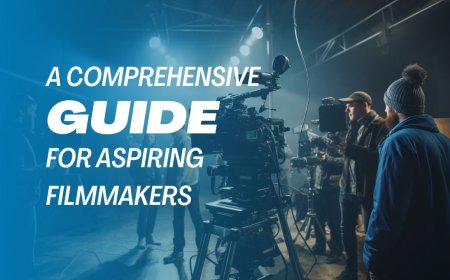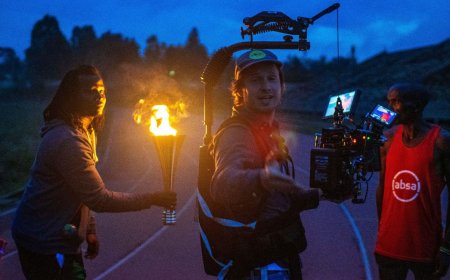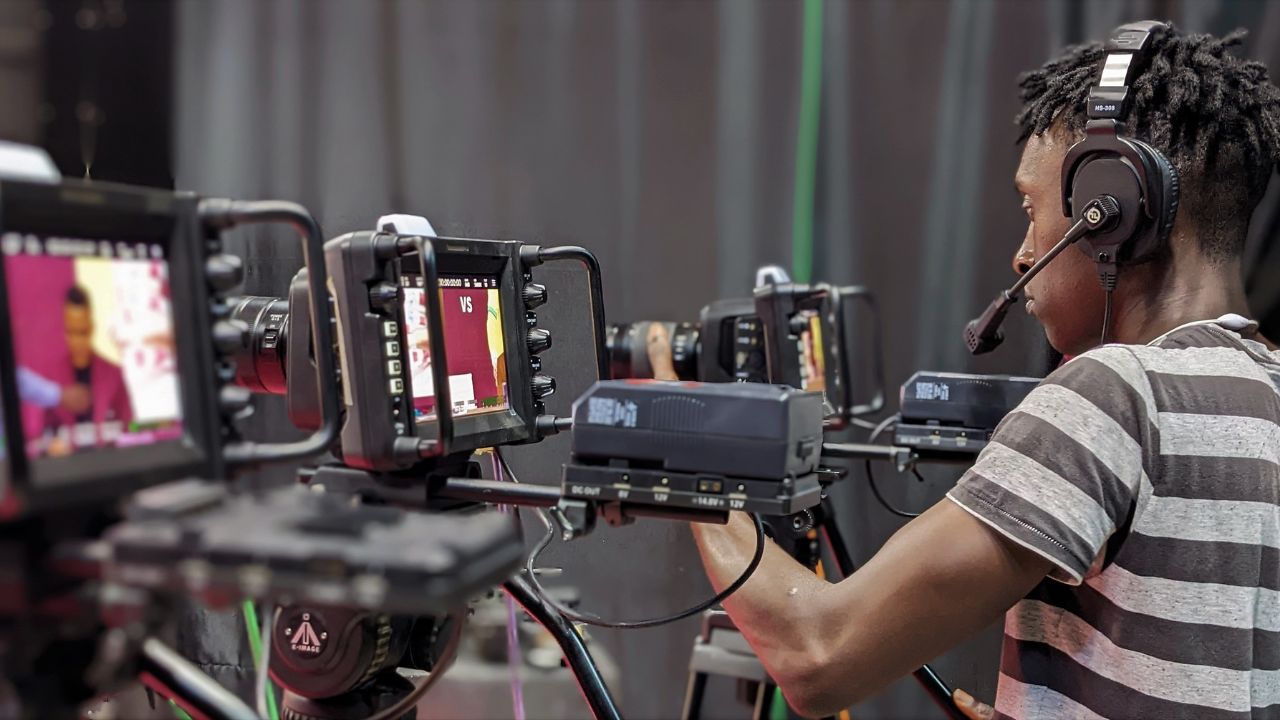What is Filmmaking?
Discover the art and science behind filmmaking—a journey from concept to creation. This comprehensive exploration delves into the stages of development, pre-production, filming, post-production, and distribution. Unravel the intricacies of storytelling through motion pictures, where creativity and technology converge. Whether you're a cinephile or an aspiring filmmaker, this guide illuminates the captivating world of filmmaking, where each frame is a brushstroke on the canvas of storytelling.

Filmmaking is a multifaceted and intricate art form that involves the collaborative efforts of various individuals and departments to bring a cinematic vision to life. At its core, filmmaking is the process of creating a motion picture, capturing and conveying stories through a combination of visual, auditory, and narrative elements. It is a harmonious blend of creativity, technology, and business acumen, encompassing a series of distinct phases that span from conceptualization to distribution.
The Stages of Filmmaking:
1. Development and Writing:
- Creative Genesis: Filmmaking typically begins with an idea, a story, or a concept that captivates the imagination of a filmmaker.
- Screenwriting: This idea is then translated into a screenplay, a foundational document that serves as the blueprint for the entire film.

2. Pre-production:
- Planning and Organization: In this phase, the focus shifts towards meticulous planning, organization, and logistics.
- Casting and Crewing: Key decisions are made regarding the selection of the cast and crew, with contracts and agreements solidified.
- Technical Planning: Detailed plans for cinematography, set design, costumes, and other technical aspects are formulated.

3. Production:
- Actual Filming: This is the phase where the script comes to life, with scenes being filmed according to the pre-established plans.
- Director's Vision: The director takes charge, guiding actors, making creative decisions, and overseeing the realization of the film's visual and narrative elements.
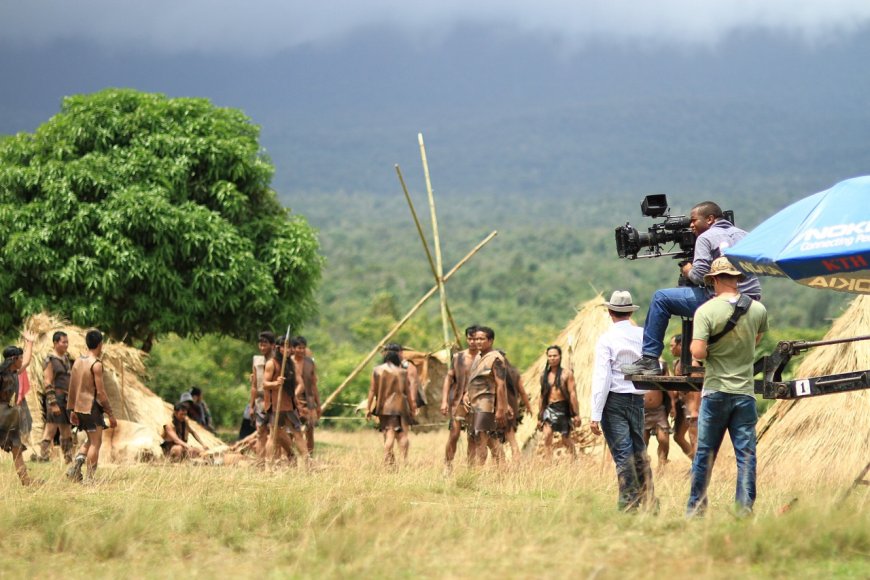
4. Post-production:
- Editing: The raw footage is compiled and edited to create a cohesive and engaging narrative.
- Sound Design: Sound effects, music, and dialogue are integrated, enhancing the overall auditory experience.
- Visual Effects: If required, visual effects are added to enhance or create elements that were not possible during filming.
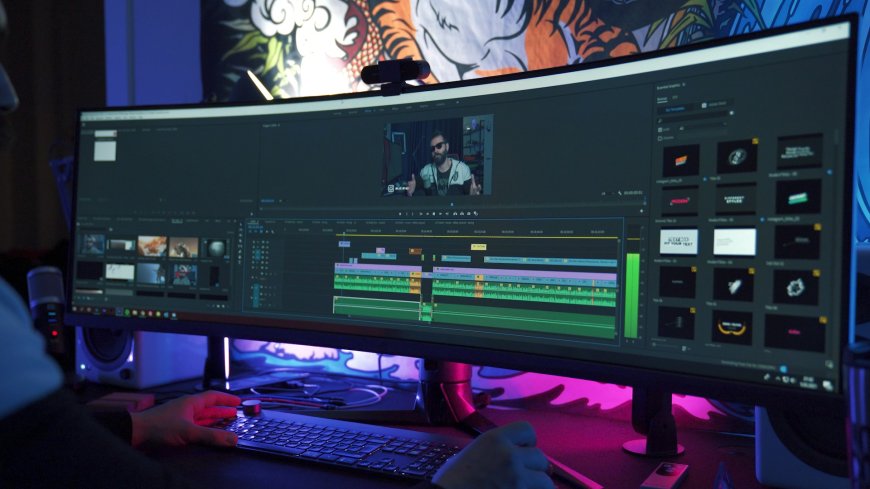
5. Marketing and Publicity:
- Strategic Planning: Filmmakers must consider the target audience, genre, and market trends when developing marketing strategies.
- Building Buzz: Creating anticipation and interest in the film through promotional activities, trailers, and social media.

6. Release, Sales, and Distribution:
- Navigating Distribution Channels: Decisions are made regarding how and where the film will be released, whether in theaters, on streaming platforms, or through other distribution channels.
- Negotiations: Filmmakers engage in negotiations with distributors, aiming for the best possible exposure and returns.

7. Royalty and Maintenance:
- Financial Obligations: Filmmakers must manage finances, collect royalties, and fulfill contractual and legal obligations.
- Long-Term Commitment: Even after the film's initial release, there is a responsibility to maintain its integrity and address ongoing matters related to the project.
The Essence of Filmmaking:
Filmmaking is not just about capturing images on a screen; it's a means of storytelling that transcends cultural and linguistic boundaries. It requires a delicate balance between creativity and practicality, artistry and technology. Successful filmmakers not only possess a keen artistic vision but also an understanding of the business aspects of the industry. As technology advances and the industry evolves, filmmaking continues to be a dynamic and ever-changing landscape, offering endless possibilities for those passionate about the craft.
Start Your Filmmaking Journey Today!
If you’re ready to turn your passion into a career, look no further. Spectrum Film School is the best place to study film production in Nairobi, Kenya, East Africa, and Africa at large! It offers comprehensive courses in film production, equipping you with the skills and knowledge to excel in this dynamic field.
Enroll today and become part of Kenya’s rich filmmaking legacy!
Visit us at Spectrum Film School
Kalyan House, Tubman Road, Nairobi, Kenya
Contacts:
- Phone Number: (+254)798486790
- Email: info@spectrumfilmschool.com
- Website: spectrumfilmschool.com
- Location: Kalyan House, Tubman Road, Nairobi, Kenya
Let’s make your filmmaking dreams a reality!
















